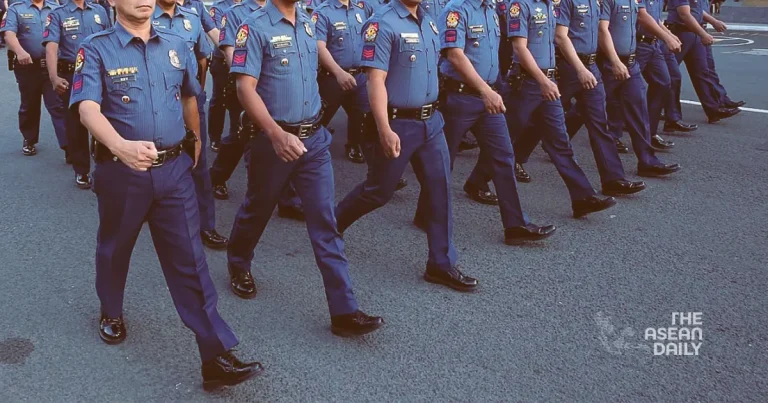18-6-2024 (MANILA) In a landmark ruling that has sent ripples of hope through the Philippine justice system, four police officers were found guilty on Tuesday (Jun 18) of killing a father and son during the notorious anti-drug campaign spearheaded by former President Rodrigo Duterte. The rare conviction represents a significant step forward in holding law enforcement accountable for the thousands of extrajudicial killings that marred the crackdown on narcotics.
Manila regional trial court judge Rowena Alejandria delivered the verdict, sentencing the four officers to up to 10 years in prison for the shooting deaths of Luis and Gabriel Domingo, who were gunned down in a Manila slum during an anti-drug operation in 2016. In her written judgment, Alejandria emphasized the undeniable presence and participation of the accused officers in the fateful event that claimed the lives of the two victims.
“It must be worthy to note that the accused themselves did not deny their presence and participation in the police operation conducted, the same event where the victims Luis and Gabriel (Domingo) were killed,” Alejandria stated, underscoring the gravity of the officers’ actions.
The courtroom was filled with emotion as Mary Ann Domingo, Luis Bonifacio’s partner, wept on her son’s shoulder while the verdict was read, encompassing two counts of homicide for each of the accused. In addition to their prison sentences, Manila policemen Virgilio Cervantes, Arnel de Guzman, Johnston Alacre, and Artemio Saguros were ordered to pay 300,000 Philippine pesos (US$5,100) in damages to the victims’ heirs.
The Domingo family has long maintained that more than a dozen police officers were involved in the nighttime raid on their northern Manila slum community. They insist that Luis and Gabriel were not involved in drugs and were unarmed when the police opened fire. The defendants, however, pleaded self-defense, alleging that the suspects were armed and had shot at them.
Ultimately, state prosecutors pursued the lesser charge of homicide against only four officers, rather than murder, which carries a heavier penalty and involves deliberate intent to kill.
The Duterte administration’s war on drugs, which became the centerpiece of his 2016 to 2022 rule, has been widely condemned for its brutality and disregard for due process. Official data shows that more than 6,000 people died in police anti-narcotics operations, while rights groups estimate that tens of thousands of mostly poor men were killed by officers and vigilantes, often without any evidence linking them to drugs.
Duterte had openly ordered police to shoot dead suspects during anti-drug operations if officers believed their lives were in danger, a directive that human rights advocates condemned as a green light for extrajudicial killings.
While the crackdown has sparked an international investigation and widespread condemnation, only a handful of policemen have been convicted for killing drug suspects. Three Manila police officers were found guilty in 2018 of murdering a 17-year-old boy in 2017, while two other narcotics police officers were convicted last year for separate killings in 2016 and 2017, the latter victim being a South Korean businessman.
Lawyers argue that most families are too scared or lack the resources and time to pursue cases against their relatives’ killers in the Philippines’ overburdened judicial system.
The Philippine drug crackdown is currently under investigation by the International Criminal Court (ICC), which stated in 2021 that it appeared “a widespread and systematic attack against the civilian population took place pursuant to or in furtherance of a state policy.” However, Duterte withdrew the Philippines from the ICC in 2019, limiting the investigation to only cases before that date.
President Ferdinand Marcos, who succeeded Duterte, has refused to cooperate with the ICC probe, citing the country’s functioning judicial system.




